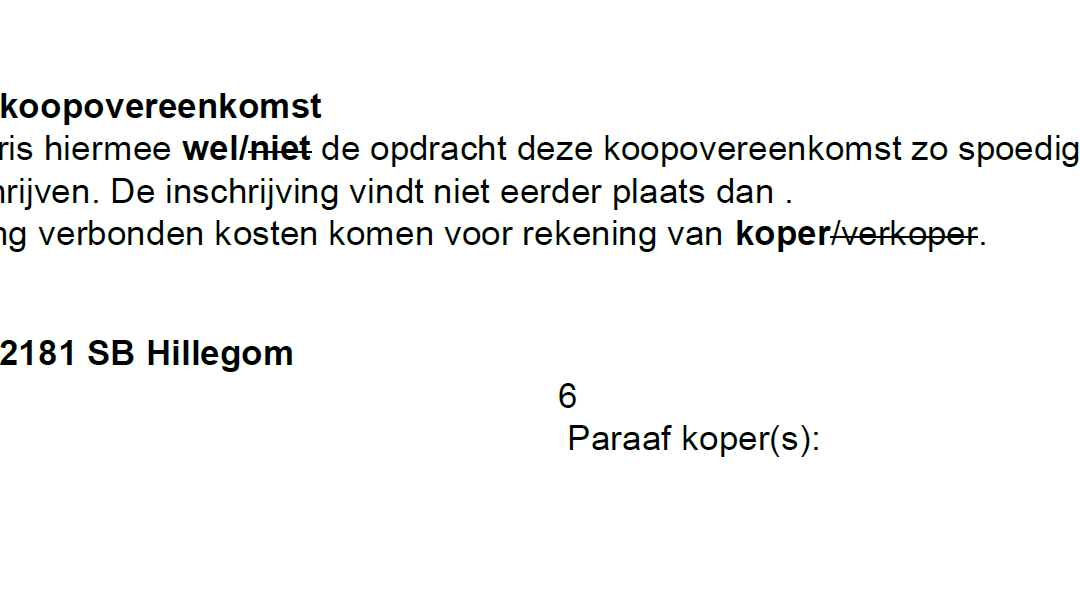Just to get straight to the point, the answer to this question is YES.
A short explanation: anyone who buys a house in the Netherlands has the legal right to have the purchase agreement registered in the Land Registry. You then register the sale. If you want this, the notary will arrange this for you. The Land Registry and notarial costs together amount to approximately: €200,-
But what is registration of the deed of sale good for and why on earth would you do this?
If you have the sale registered in the Land Registry, this gives you extra protection.
Imagine you bought a house for €500,000. The purchase deed has been signed and everything is arranged. The transfer is scheduled for August 1st. The seller illegally sells his house to another person tomorrow for €530,000. The transfer to this 2nd buyer will take place a month earlier on July 1st. You find out on June 2nd that the house has been secretly sold and has already been transferred to another owner. Then you are completely without rights. You can totaly forget about the house. Of course you can hold the seller liable for all damage + 10% of the purchase price, but that often makes little difference. It is not always easy to collect that money from the seller. And the most important thing is that you don’t have the house nor will you ever get it. The buyer and new owner of the house is innocent and has full rights to the house.
If you had entered the purchase in the Land Register, then the notary could never and should never transfer the house to someone else. Your future home is then protected.
If you think that the above does not occur in practice, then you are wrong. This actually happens in practice. You have to imagine that there are regularly dishonest but also stupid homeowners who are tempted by a better offer even after the house has already been sold.
But things go wrong more often with homeowners who act in good faith. It could be that people are in debt or get into debt. Creditors can have the property seized in the Land Registry. If an attachment is registered in the Land Registry, you and the owner can try to move mountains, but you can’t get that attachment off just like that. And if a house is seized, it cannot be transferred.
Debts do not always have to be justified. It is possible that the owner is brought before a legal process by someone and from there an attachment is levied on the current house. Another very realistic example: suppose the owners have bought a new home and their new home is being extensively renovated by a contractor. That contractor makes big mistakes and the owners want to see that the contractor fixes those mistakes before paying the next invoice from him. That contractor could register an attachment on the house you bought in a few short intermediate steps. Even if this is completely wrong. If you have not registered the purchase in the Land Registry, your new house is not protected against attachment and the transfer cannot take place until the attachment has been removed from the Land Registry.
Furthermore, a lot can happen in a person’s life. Especially if the transfer does not take place in 6 months. People can die, heirs can get into a fight, people can become mentally ill, and so on.
That is why we always advise you: simply register a purchase at the Land Registry. Buying a house is already expensive enough and saving on these costs is often not wise.

